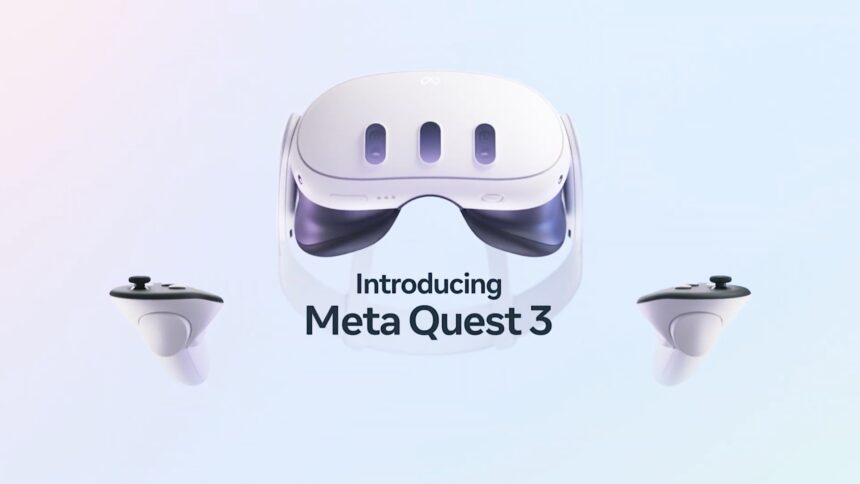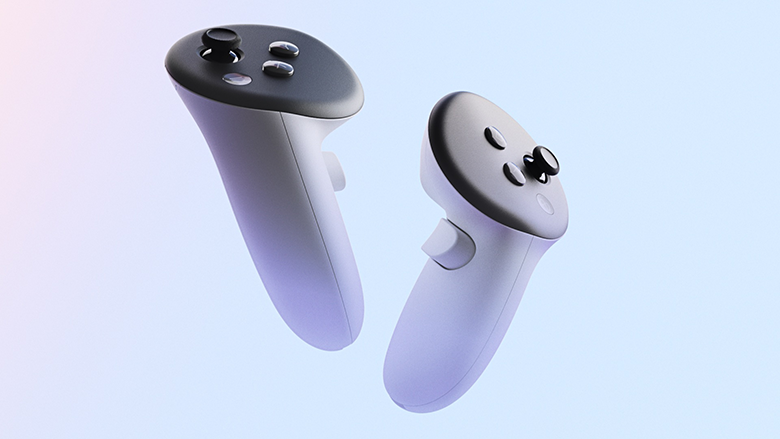
Meta Quest 3 offically announced by Zuckerberg
Apple's much-anticipated VR/AR headset reveal is expected to take place at WWDC, but Meta (formerly Facebook) has taken a leap forward with its own headset news. Meta CEO Mark Zuckerberg shared details about the Quest 3 on his Instagram channel, providing insights that were previously anticipated to be unveiled by the end of this year. The Quest 3 will have a starting price of $500, higher than the Quest 2 but lower than the PlayStation VR 2. Zuckerberg mentioned that more information about the Quest 3, including the launch date, will be shared during Meta's Connect developer conference on Sept. 27.
Since last fall, the existence of the Quest 3, a successor to the popular Quest 2 headset, had already been known. Prior to Zuckerberg's recent announcement, several details, including a hands-on test drive of a prototype version, had been leaked.
In the meantime, the Quest 2 is receiving a price drop back to its original starting price of $300, accompanied by an upcoming software update that promises performance enhancements.
Meta also unveiled a lineup of exciting VR games slated for release on the Quest 2 and Quest 3 this year. These include an Assassin's Creed VR game, a game based on the Attack on Titan anime series, a port of Sega's classic game Samba de Amigo, and a standalone VR sequel to the PC RPG Asgard's Wrath.
The Quest 3 brings a notable enhancement with the inclusion of color cameras, enabling superior mixed reality experiences that seamlessly blend real-world video with virtual reality displayed on the headset. This advancement is expected to encourage the development of more augmented reality (AR) apps on the Quest platform. While the Quest Pro also offers mixed-reality capabilities, its higher price may have limited the extent of app development to fully utilize this feature.
Another highlight of the Quest 3 is the introduction of a new Qualcomm VR/AR chip, promising faster performance. While the existing Quest 2 library will be compatible with the Quest 3, the upgraded hardware specifications are likely to inspire the creation of a new wave of advanced games and apps that may eventually become exclusive to the Quest 3, similar to the transition from the original Quest to the Quest 2.
Although the Quest 3 does not include eye tracking like the more expensive Quest Pro, which targets work-focused applications, it appears to be a superior VR headset overall. Alongside the announcement of a lineup of new VR games, Meta is clearly positioning itself to maintain its dominance in the VR gaming console market, while Apple potentially takes a different path with its high-priced and potentially work-focused headset.
Watch Introduction Video at Instagram
Meta Quest 3 Improvements:
- The upcoming Meta Quest 3 showcases advancements in several key areas. It boasts the highest resolution display ever seen in a Meta headset, delivering stunning visuals. Additionally, the inclusion of custom pancake lenses enhances the overall visual experience.
- The Meta Quest 3 is powered by a next-generation Snapdragon chip, developed in collaboration with Qualcomm. This chip offers a remarkable improvement in GPU performance, more than doubling the capabilities of the previous Meta Quest 2's Snapdragon XR2 Gen 1.
- One of the standout features of the Meta Quest 3 is its high-quality color pass-through functionality. Equipped with dual 4MP RGB cameras and a depth sensor, it provides an exceptional pass-through mode with a resolution ten times greater than that of the Meta Quest 2.
- In terms of design, the Meta Quest 3 boasts a 40 percent thinner profile compared to its predecessor, resulting in enhanced comfort during extended use. This improvement, excluding the foam facial interface, contributes to a more enjoyable and immersive experience.
- The controllers have also undergone a redesign, now known as the Touch Plus Controllers. With a more ergonomic design and the removal of tracking rings, they offer improved usability. Additionally, these controllers support the enhanced TruTouch haptics, first introduced in the Touch Pro controllers, adding a heightened level of tactile feedback for a more engaging interaction.

Meta Quest 3 Controller









